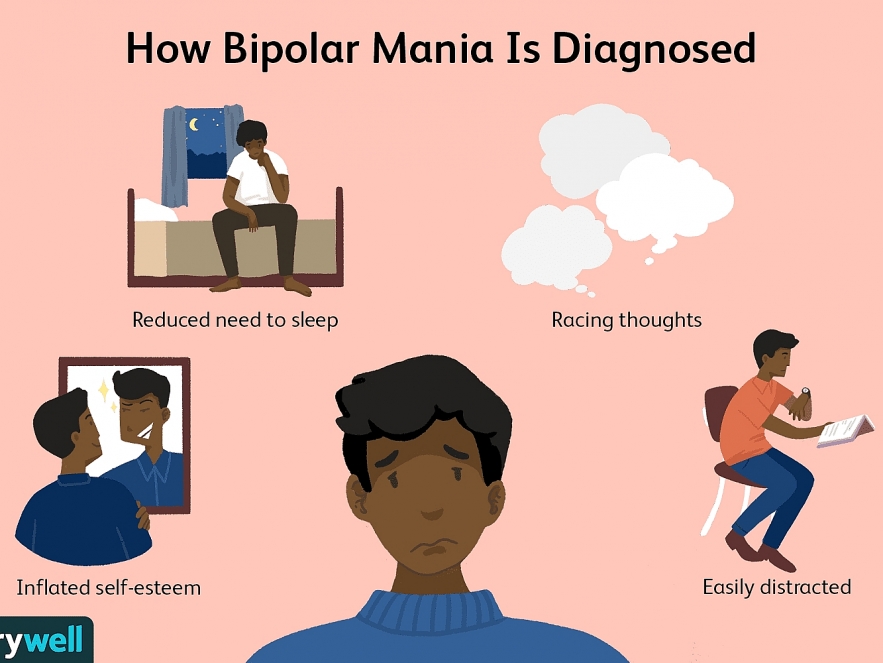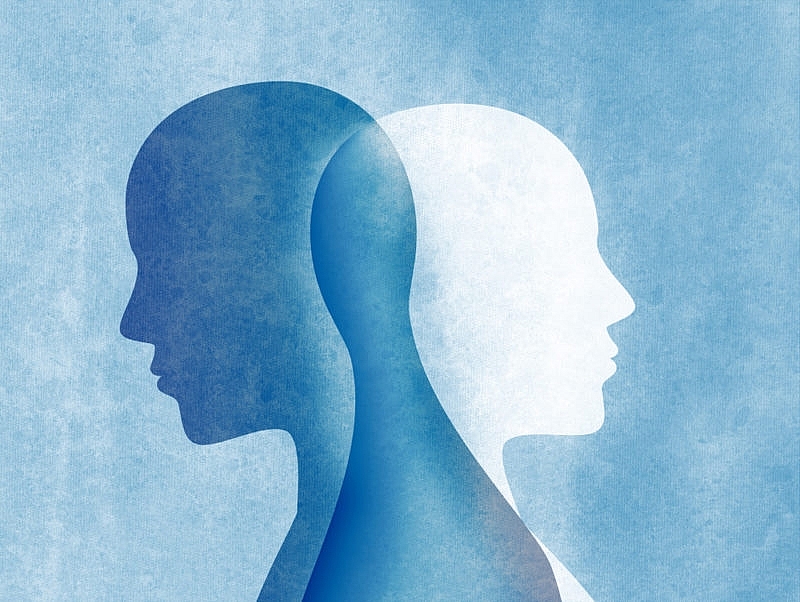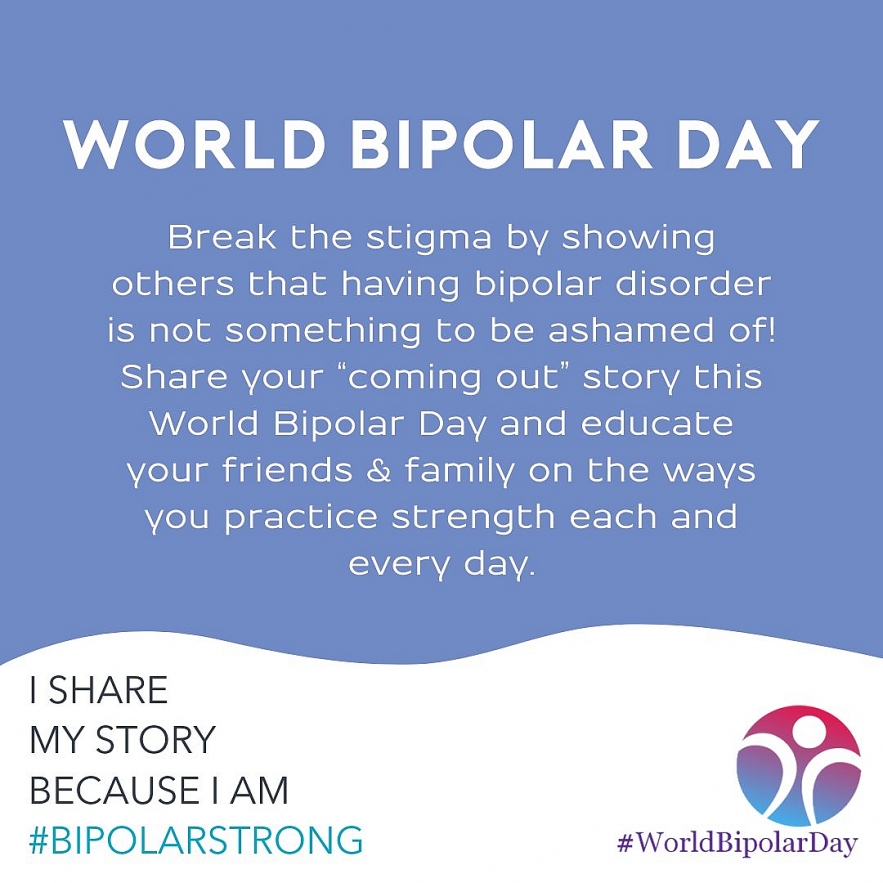World Bipolar Day: Date, Celebration, Significance And How To Assist Bipolar Disorder Patients
 |
| World Bipolar Day (March 30): Significance, Celebration And How To Assist Bipolar Disorder Patients. Photo KnowInsiders |
When is World Bipolar Day?
World Bipolar Day is observed on March 30 every year, on the birthday of Dutch painter Vincent van Gogh — one of the most influential artists in the history of Western art. His creativity was paralleled with his mental illness and he was posthumously diagnosed with bipolar disorder. Bipolar disorder dramatically affects the mood and may result in episodes of depression and elation, which can affect one’s health, productivity, and relationships. World Bipolar Day educates and promotes the spread of information on bipolar disorder through international collaborative efforts.
What is Bipolar Disorder?
Bipolar Disorder is a mental health condition that mainly affects your mood. People with Bipolar Disorder are likely to have times where they experience:
Manic or hypomanic episodes (feeling high)
Depressive episodes (feeling low)
Potentially some psychotic symptoms – during manic or depressed episodes
How is Bipolar Disorder Diagnosed?
 |
| Photo verywell |
In order to make a bipolar disorder diagnosis, the individual would need to be referred to a psychiatrist, usually by their GP. During the diagnostic process, the psychiatrist will ask a series of questions about how you’re feeling, your symptoms and how long you have been experiencing them for.It is also particularly important for the psychiatrist to know your medical history, family history and whether any family members have the disorder.
Depending on the symptoms you might be asked to do a test to check your thyroid and to rule out any physical concerns.
If you do have bipolar disorder you will have regular appointments with your GP and psychiatrist to work together on the best treatment plan for you.
| FACTS ABOUT BIPOLAR DISORDER THAT YOU DIDN’T KNOW It affects every aspect of life Bipolar disorder is crippling and impedes success in every domain of life — work, relationships, and even day-to-day tasks like showering or sleeping, etc. Bipolar disorder comes with other ailments Bipolar disorder crosses the boundary of just causing mental problems — it affects a person physically as well in the form of spasms, migraines, and metabolic disorders. It is different for everyone Just like fingerprints, no two bipolar disorders are the exact same — diagnosis varies significantly, which makes characterizing the illness and prescribing treatment for it even more difficult. Celebrities suffer from it, too Demi Lovato, Mary Lambert, Kanye West, and Richard Dreyfuss are some high-profile celebrities who are combating bipolar disorder. The cause can be anything A research team from the University of Michigan conducted a study on bipolar disorder that spanned two decades and found that bipolar disorder cannot be given a single root cause, as it is mostly the result of a combination of biological and environmental factors. |
Why Bipolar Day so important?
 |
| Photo Shutterstock |
Bipolar disorder affects every aspect of life: It may be difficult to fully comprehend the toll bipolar disorder can take on someone because it is an invisible illness. As bp Magazine vlogger Natasha Tracy describes in a powerful video, it can be as crippling --impacting relationships, working, and all aspects of everyday life—from sleeping to showering.
Bipolar disorder has many causes, from genetics to life events: After a study that spanned nearly two decades, a team from the University of Michigan found that there is no single genetic change, life event, or chemical brain imbalance that could be the root cause of bipolar disorder. Many times, it is a combination of several biological and environmental factors that can trigger bipolar disorder.
Bipolar disorder rarely exists alone: As if a mood disorder that involves long-spanning depressions and manic episodes wasn’t enough to deal with, bipolar disorder can also come with other physical and psychological conditions to worry about. These include metabolic disorders and migraines.
Everyone’s bipolar disorder is different: Bipolar disorder is like fingerprints and snowflakes—no two people have the exact same symptoms and each diagnosis can vary greatly. However, there are two main types of bipolar disorder: Bipolar I which is characterized by one or more manic episodes that last at least a week and require hospitalization; and bipolar II, which is characterized by more depressive episodes.
There are many celebrities that live with bipolar disorder: Celebrities including Demi Lovato, Richard Dryfuss, and Mary Lambert are using their high-profile platform to combat bipolar disorder stigma. Demi Lovato in particular is making headlines for bringing the CAST Foundation on her Tell Me You Love Me Tour. CAST is an extension of a Los Angeles-based mental health awareness organization that Demi says helped her stay sober for six years.
There may be a creativity connection: Did you know that World Bipolar Day occurs on Vincent van Gogh’s birthday? Van Gogh, considered one of the most influential artists of all time[7], was posthumously diagnosed as having bipolar disorder. Another famous face of creativity is Carrie Fisher, known for her role as Princess Leia in the Star Wars franchise. She’s considered a heroine for rebelling against mental health stigma.
It is life-threatening, and support is vital: An estimated 1 in 5 people diagnosed with bipolar disorder dies by suicide. World Bipolar Day is an opportunity to show those living with the day-to-day challenges of this condition they are not alone, they have your support, and there is always hope.
How you can get involved for Wolrd Biopolar Day
Wear a Ribbon: Wear a green bipolar disorder ribbon in solidarity with all of those whose lives have been affected in some way by BP. You could also wear a green BP wristband, bracelet, or pin.
 |
| Photo Freepik |
Participate in Online Events: Visit isbd.org/get-involved to learn about how you can engage with and/or organize BP events in your area.
Share Your Story: If you or a loved one has experienced BP, consider sharing your story to help others feel less alone.
 |
| Photo Twitter |
Get Social: There are plenty of easy ways to support World Bipolar Day on social media, including updating your avatar with a WBD ribbon or sharing BP facts.
Donate to Research Groups: We still have a lot to learn about BP. Contribute to these efforts by donating to the ISBD or other dedicated research groups.
Help a friend: It is possible that a friend or loved one may be suffering from bipolar disorder. Pay attention to anyone showing extreme mood swings and get them to seek a professional opinion.
Talk about it: Talk openly and honestly about bipolar disorder. There is no shame in it! Share your experiences and get involved on World Bipolar Day.
How To Support Someone With Bipolar DisorderEducate YourselfThe more you know about bipolar disorder the stronger position you’re in to be able to help someone who has the illness. It is particularly important a loved one understands someone’s symptoms as well as the warning signs of a manic or depressive episode and how to prepare for them. Lend an EarWhen we’re struggling, we aren’t always looking for someone to “fix” us, we just want to be heard. Don’t feel like you always need to provide answers, instead offer acceptance. Understanding can go a long way for someone dealing with a mental health condition. Stay calm during conversations, be an active listener and avoid topics that you know might be triggering. Create a Support PlanWhen someone with bipolar disorder is in the throes of a manic episode they might not be able to see how this looks externally which can be destructive for them. During a manic episode, offer support with managing their finances, or other unhealthy behaviours. Often, advice may not be taken lightly because they feel good and don’t believe they need it, so conflict is to be expected. Similarly, during a depressive episode be a source of support, encourage them to do small activities, and stay optimistic for them. Monitor Extreme FluctuationsDue to the changes in mood, activity and energy levels, your loved one may seem like they are trying to take on a new identity, for example suddenly they are really into fitness. This can be a warning sign of an individual in a manic episode, and can show up physically (trying to look different) or by changing friend groups entirely. Risk-taking behaviours can be damaging during a manic episode such as substance abuse or engaging in unhealthy activities. During depressive episodes, be mindful of suicide and self-harm. Frequently check in on them or if you are living together, give them the space they need but let them know you’re there if they need you. If you are particularly concerned for a loved one’s safety or yours, we recommend calling 111 or taking them to hospital. |
 Multiple Myeloma: Symptoms, Causes, Diagnosis and Treatment Multiple Myeloma: Symptoms, Causes, Diagnosis and Treatment Multiple myeloma is cancer that forms in a type of white blood cell called a plasma cell. Healthy plasma cells help you fight infections by ... |
 Canavan Disease: Symptoms, Causes, Diagnosis and Treatment Canavan Disease: Symptoms, Causes, Diagnosis and Treatment Canavan disease is a hereditary condition that prevents the brain’s nerve cells (neurons) from properly sending and receiving information. What Is Canavan Disease and How ... |
 Ebola Outbreak 2021 in Africa: Origin, Causes and Treatment of Disease Ebola Outbreak 2021 in Africa: Origin, Causes and Treatment of Disease For more than a year the world has been in turmoil because of the covid epidemic, now the Ebola outbreak in Africa continues to threaten ... |
 Typhoid Fever: Symptoms, Causes, Transmission & Treatment for most common disease in India Typhoid Fever: Symptoms, Causes, Transmission & Treatment for most common disease in India Be careful since spring time is perfect for bacteria to cause some certain fevers, which include typhoid. Below Knowinsiders would give you critical knowledge about ... |
























